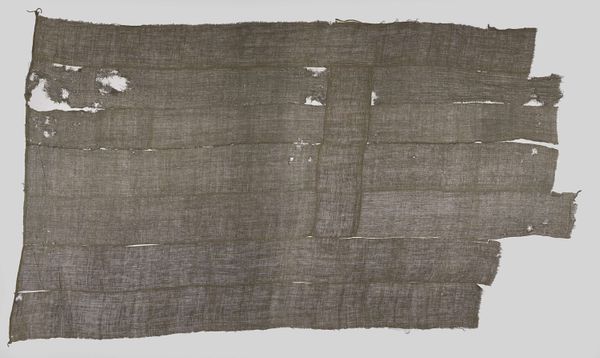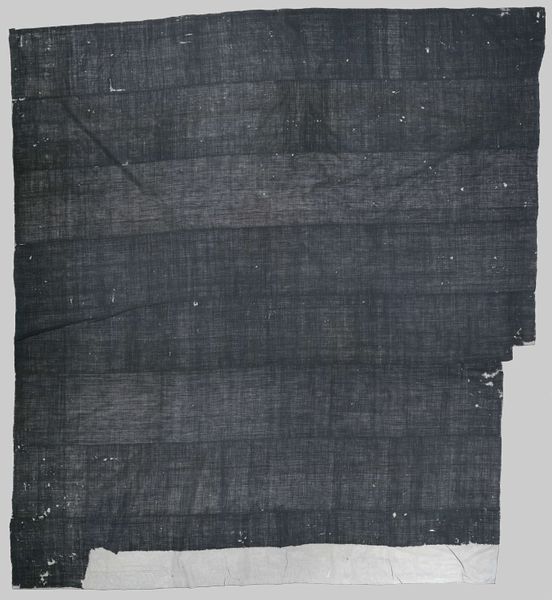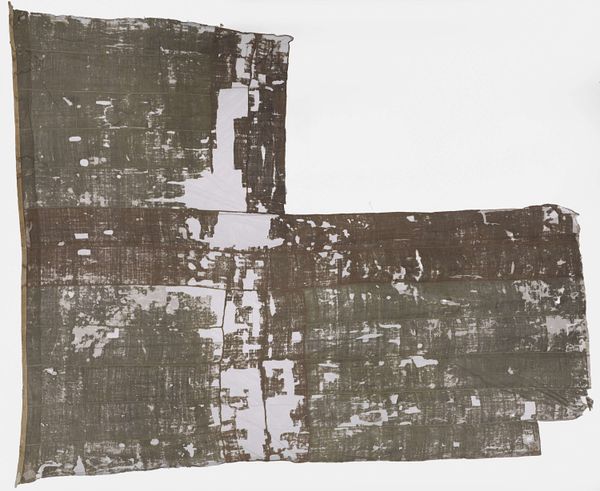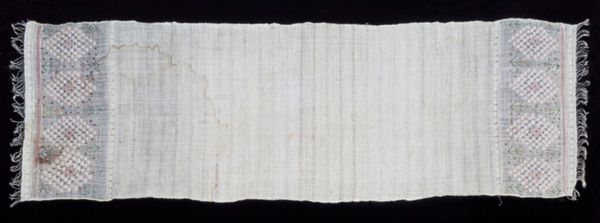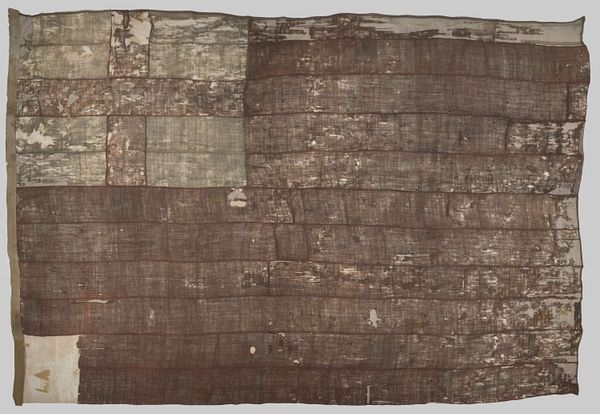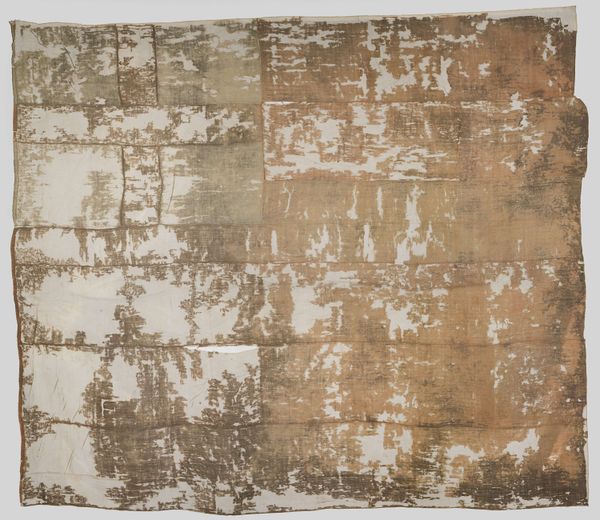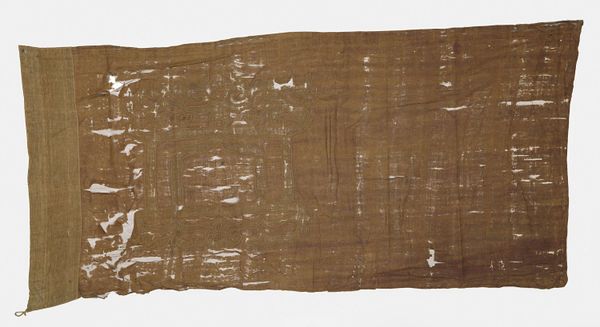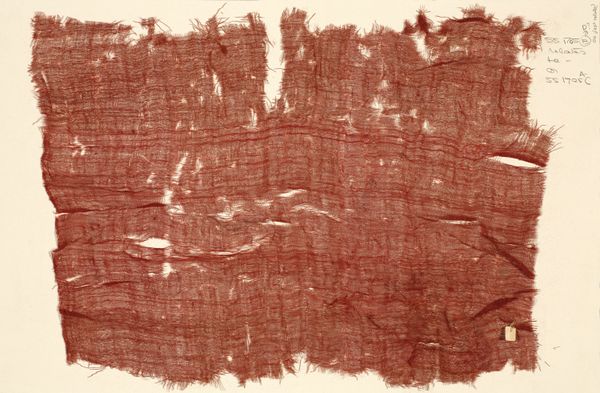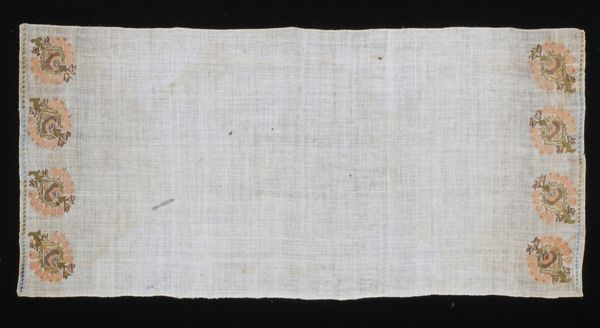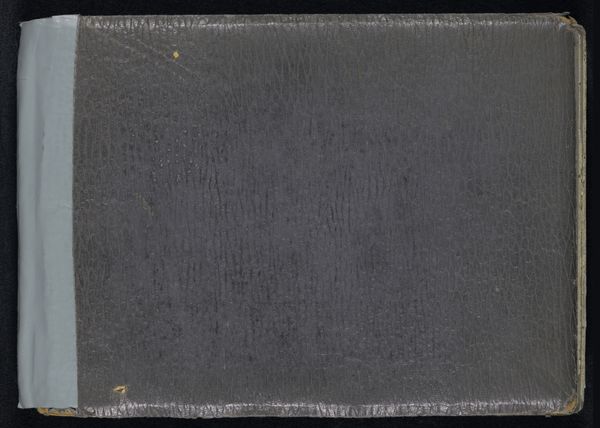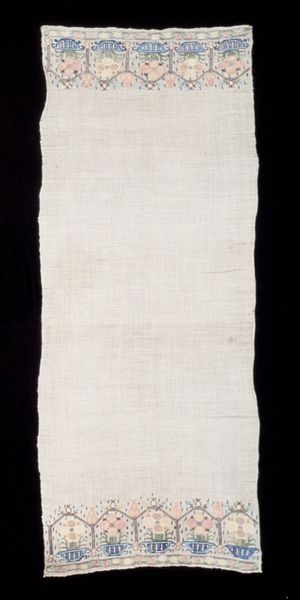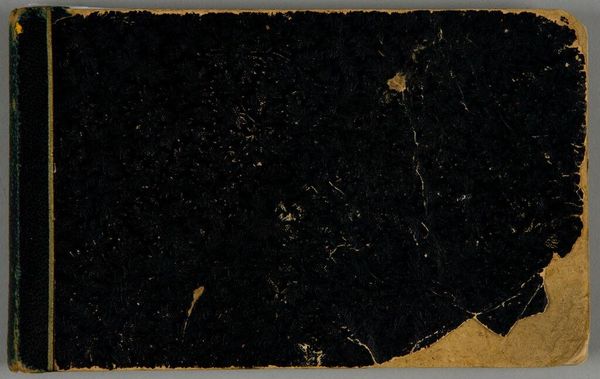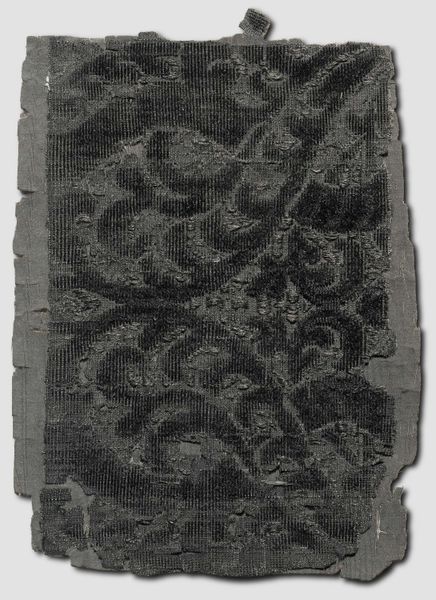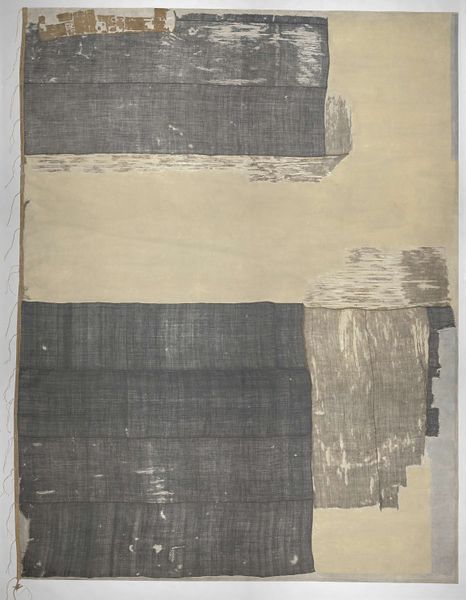
drawing, print, textile, paper, ink
#
drawing
#
natural stone pattern
#
rippled sketch texture
#
rough brush stroke
#
worn
# print
#
textured
#
textile
#
paper
#
grainy texture
#
ink
#
chalky texture
#
carved into stone
#
natural texture
#
organic texture
Dimensions: height 297 cm, width 297 cm
Copyright: Rijks Museum: Open Domain
Editor: This striking piece is entitled "Fragment of a Ship Flag," dating back to somewhere between 1630 and 1707. It's made with textile, ink, paper, and appears to be a print, drawing. What really strikes me is the overwhelming texture and the apparent wear and tear. What can you tell me about this piece? Curator: Look at the way the artist has chosen these specific materials. Textile, paper, and ink were readily available in seafaring communities. Its creation would have involved practical skills of printing, dyeing, sewing, each step bearing witness to the maritime industry. It begs the question, what kind of labor went into producing a ship flag at this time? Editor: That's interesting! It suggests this flag wasn’t just decorative; it embodies the work, the effort… Almost like the flag *is* the work itself. Do you think its distressed look is intentional or simply age? Curator: Its ‘worn’ aesthetic invites contemplation on the physical realities of seafaring life. The disintegration of the material acts as a potent metaphor for the toll taken on both ships and their crews by the sea. This deliberate embrace of “wear” as part of the flag's aesthetic suggests a commentary on maritime labor conditions of that time. Could this possibly point to hidden or erased labor histories within trade? Editor: So, we're not just looking at a flag, but a record of labor, trade, and the harsh realities of life at sea… something more than just a symbol of national pride or corporate endeavor. Curator: Precisely. Its artistic value lies in its ability to tell stories, challenging our preconceived notions of nationalistic symbols and forcing a material understanding of labour and industry. Editor: I’ll definitely look at textiles differently from now on! Thanks for making me see it in a completely new light.
Comments
No comments
Be the first to comment and join the conversation on the ultimate creative platform.
